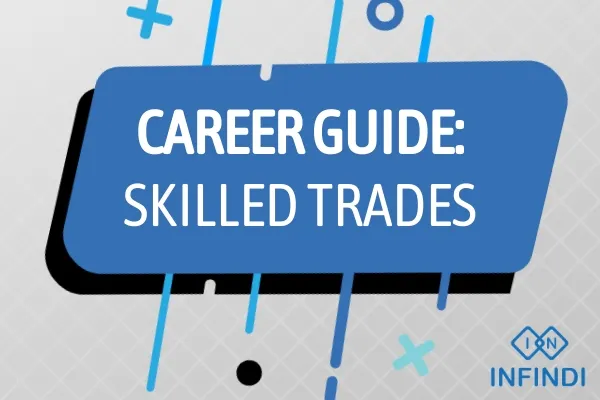For those with a passion for hands-on work, a knack for precision, and a desire to master a trade, careers in skilled trades offer a dynamic and fulfilling path. Whether you’re an experienced tradesperson or someone exploring entry-level opportunities, understanding the intricacies of jobs in skilled trades is essential. This article aims to provide a comprehensive guide to skilled trades careers, addressing duties, salary expectations, job descriptions, skills, qualifications, education and training requirements, experience prerequisites, frequently asked questions, and daily tasks.
1. Duties and Responsibilities
Skilled trades professionals play a crucial role in constructing, maintaining, and repairing various structures and systems. Common duties and responsibilities include:
- Installation: Installing and assembling components of structures or systems.
- Maintenance: Performing routine maintenance and repairs.
- Blueprint Reading: Interpreting technical drawings and specifications.
- Precision Work: Using specialized tools for accurate and detailed craftsmanship.
- Problem-Solving: Identifying and addressing issues in construction or repair projects.
2. Salary Expectations
The salary for jobs in skilled trades varies based on factors such as experience, specialization, and industry demand. Entry-level positions may start at around $40,000 annually, while experienced tradespeople in high-demand fields can earn well over $60,000. Additional benefits, such as healthcare and retirement plans, may contribute to the overall compensation.
3. Possible Job Descriptions
Skilled trades roles encompass various positions, each contributing to different aspects of construction, maintenance, or repair:
- Electrician: Installing and maintaining electrical systems.
- Plumber: Installing and repairing plumbing systems.
- Carpenter: Constructing and repairing wooden structures.
- Welder: Joining metal parts through welding techniques.
- HVAC Technician: Installing and maintaining heating, ventilation, and air conditioning systems.
4. Skills and Qualifications
Successful skilled trades professionals possess a combination of technical skills, attention to detail, and problem-solving abilities. Key skills include:
- Technical Proficiency: Mastery of tools and equipment relevant to the trade.
- Attention to Detail: Ensuring precision and accuracy in workmanship.
- Problem-Solving: Identifying and resolving issues in construction or repair projects.
- Physical Fitness: Meeting the physical demands of the trade.
- Teamwork: Collaborating with colleagues on construction or repair projects.
5. Education and Training Requirements
Educational requirements for skilled trades jobs vary, with many positions offering apprenticeship programs that combine on-the-job training with classroom instruction. Some trades may require completion of a vocational or technical program, while others may only require a high school diploma.
6. Experience Requirements
Entry into skilled trades often involves gaining practical experience through apprenticeships or entry-level positions. Advancement to specialized roles or supervisory positions may require several years of successful work experience and additional certifications.
7. Frequently Asked Questions
Q: How does technology impact skilled trades jobs?
A: Technology has transformed skilled trades with innovations such as advanced tools, 3D printing, and digital planning tools, enhancing precision and efficiency.
Q: Can skilled trades professionals specialize in specific areas?
A: Yes, skilled trades professionals often specialize in areas such as electrical work, plumbing, carpentry, welding, or HVAC, based on their interests and expertise.
Q: What role does safety play in skilled trades careers?
A: Safety is a paramount concern in skilled trades careers, with professionals adhering to safety protocols to prevent accidents and injuries.
8. Daily Tasks and To-Do Lists
The daily tasks of a skilled trades professional can vary based on their specific trade, industry focus, and project requirements, but a typical to-do list may include:
- Reading and interpreting blueprints or technical drawings.
- Executing construction, maintenance, or repair tasks with precision.
- Using specialized tools and equipment for the trade.
- Collaborating with colleagues on projects.
- Ensuring adherence to safety regulations.
In conclusion, a career in skilled trades offers a dynamic and hands-on journey for individuals dedicated to mastering a craft and contributing to the construction and maintenance of our built environment. Whether you’re entering the skilled trades or aiming for advancement, understanding the duties, qualifications, and daily tasks associated with skilled trades jobs will set you on the path to success. Explore opportunities, hone your craft, and embark on a fulfilling career in the ever-evolving world of skilled trades.

